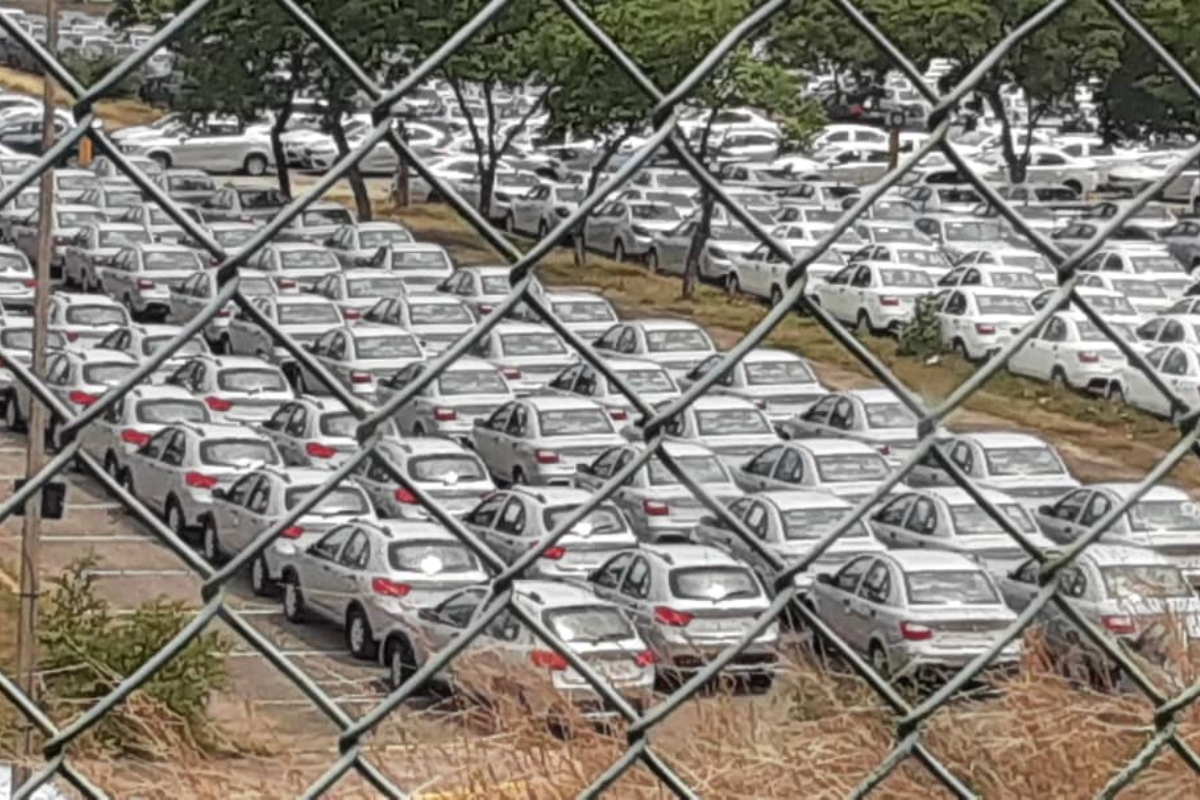Armando.info: A zero kilometer company manages the Iranian cars that arrive in Venezuela

Shortly before the July 28 elections, the president and reelection candidate, Nicolás Maduro, arrived with his wife Cilia Flores to an electoral campaign event as a passenger in an Iranian-made sedan vehicle – Tara model – labeled with the name and Ridery logo, the application made in Venezuela that offers Uber or Lyft style taxi service.
That wink from Ridery to the Maduro government seems to have followed an elementary logic, that of pleasing the supplier of the Iranian vehicles that are now part of its fleet. With the exception that the cars were not part of an award made directly by the Venezuelan government, but were purchased by Ridery from a private company named Aiko Motors, which serves as a kind of private concessionaire of the Venezuelan Ministry of Transportation.
The minister of this portfolio, Ramón Velásquez Araguayán, was one of the enthusiastic advertisers, in January 2023, that 3,000 would be imported into the country vehicles of the Ikco and Saipa brands from the Islamic Republic of Iran. The headline promoted them as “low-cost Iranian vehicles for Venezuelans” framed in the Great Venezuela Transportation Mission and that were part of a cooperation agreement signed by Maduro and the Iranian president, Ebrahim Raisí, during an official visit by the Venezuelan president to Tehran in June 2022.
own Maduro had advanced the reactivation of that binational project at the inauguration of the Iran-Venezuela Scientific, Technological and Industrial Fair Expo in September 2022 at the Poliedro de Caracas. At that time he spoke of resurrecting Venirauto, the mixed capital company launched in 2006 as the great automotive industrial project of the then presidents of Venezuela, Hugo Chávez, and Iran, Mahmoud Ahmadinejad, for which an assembly line was installed that, Between inputs and labor from both countries, it would provide a supply of 25,000 vehicles per year. In the end, Venirauto foundered in 2015 without meeting the goals of local mass assembly.
But the arrival of the recommended Iranian cars of the Great Venezuela Transportation Mission announced in January 2023 neither ended up assembled in Venezuela as Maduro promised, nor did they become the banner of the social program that would help compensate for the dilapidated national automobile fleet. Instead, the hundreds of ready-to-use Iranian-made cars that arrived in the country They were parked for more than a year, carrying sun, water and salt, in the parking lot of the Simón Bolívar international airport.. There was never an official explanation for that immobility, but towards April of that year the general comment was that “they don’t know where to store them” or “salt is falling on them there” due to their proximity to the Caribbean Sea and the seaport in the state of La Guaira. .
Little by little, the vehicles parked in that vacant lot have been removed, but they were not put up for sale in an accessible way for the Venezuelan population, harassed by constant inflation, devaluation of the bolivar and dollarization of the economy. “What’s up! None of us could buy those cars. No one could pay 12,000, 14,000 or 16,000 dollars in cash and the financing they offered was too expensive for us. In the end they distributed that among a few, like Ridery, like Conviasa and a few others, they grabbed it for the Ministry of Transportation,” says JM, a driver of a historic taxi line in Caracas, who was consulted for this report, resignedly.
Far from generating employment in terms of assembly or access in installments to facilitate their purchase, Iranian cars were not marketed by the Venezuelan State either. Instead, it disrupted a business led by a private company with a single owner, recently created and with an unknown trajectory in the automotive sector: Aiko Motors CA. A firm that would have moved more than 42 million in sales in the last two years if the retail prices and the number of vehicles that arrived in the country are taken into account.
By Lisseth Boon. More information at Armando.info.
Independent journalism needs the support of its readers to continue and ensure that the uncomfortable news they don’t want you to read remains within your reach. Today, with your support, we will continue working hard for censorship-free journalism!
